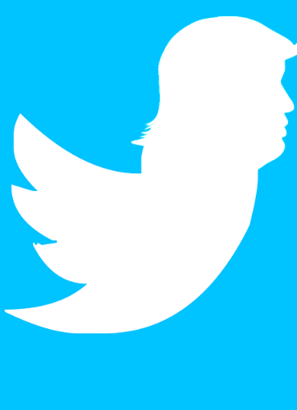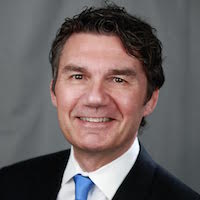Trump: The Eternal, Never-Presidential Campaigner
How Donald Trump has regulated the American public’s right to free speech: Every “Presidential” speech is a campaign event. Protest not allowed.
June 2, 2020
To fully understand the current dispute over Twitter regulating President Trump’s free speech, one needs to appreciate how much Donald J. Trump has deviated from the past political practice of previous U.S. presidents.
This isn’t just a matter of his incendiary tweets. In fact, there is method to the Trumpian madness.
How Trump regulates the American public’s free speech
No decision of the Trump team has been more significant in undermining U.S. democracy and turning the Trump Presidency into a cult-like movement than this: A couple of hours after his inauguration on January 20, 2017, President Trump officially filed his reelection campaign for 2020 with the Federal Election Commission (FEC).
This step, completely unprecedented for a just-elected incumbent, allowed Trump from day one to hold (partisan political) rallies and raise funds for his re-elections.
Even more important than the money collection factor was that, because of his FEC filing, Trump was able to regulate his public speaking events.
How Trump created a protest-free environment
We know how fickle Trump is and how needy he is with regard to bathing in the adoration of admiring crowds. The problem thus became this: How to shut out the American public in presidential appearances?
Campaign regulations allow a candidate and his campaign to drown out any opposing voices at his speeches. Special rules that apply to those rallies, of which Trump has held nearly 100 since his inauguration.
Most significantly, organizers can refuse entry to non-supporters. In addition, these public rallies can be systematically used to build up a huge database collecting the names of potential future voters.
No more true “Presidential” speech events
To be sure, not all of the President’s speeches are rallies and, therefore, the attendance restrictions do not apply to all of his public events.
However, most often even those non-FEC-regulated (=non-campaign) speeches are held in a “safe” and very formal setting.
The completely unrestrained President
Worse yet, on July 23, 2019, Mr. Trump also announced categorically: “I have an Article 2 [of the Constitution], where I have the right to do whatever I want as president.”
What he means by that became evident in the wake of the George Floyd killing, Trump took it upon himself to threaten to use the U.S. military against demonstrators, stating “…when the looting starts, the shooting starts.”
This is a loaded phrase in American politics. It had been made ignominiously famous in 1967, at the height of the civil rights movement. Then Miami police Chief Walter Headley proudly announced that “he would use shotguns, dogs and stepped up ‘stop and frisk’ policy to reduce crime in the city’s Negro area.”
Enter Twitter
There is much debate now about Twitter’s right to flag this tweet as a violation of its policies because it glorified violence.
There are very good reasons for Twitter CEO Jack Dorsey, after much reluctance, to conclude that “Twitter rules and policies” and “General guidelines and policies” — which govern the behavior of its users — must also be applied to the President of the United States.
Trump’s aiders and abettors
While this is a watershed moment in several ways, it is in many ways the logical outcome of several profound failings of other political actors:
First, there is the pathetic unwillingness of the Republicans in the U.S. Congress to distance themselves from Donald Trump one bit from his constant lies.
Second, there is the unwavering support of Trump’s religiously motivated supporters to stand by their man, no matter how egregious his deliberate moral failings are.
The constitutional dimension
Twitter, Facebook or other social media do not face any legal responsibility for hate speech since that is protected as free speech under Article I of the U.S. Constitution.
In addition, Sec. 230 of the 1996 Communications Decency Act (CDA), exempted internet providers from any liability by stating: “No provider or user of an interactive computer service shall be treated as the publisher or speaker of any information provided by another information content provider.”
This provision was upheld as constitutional by the Supreme Court. Much later, it was applied to the social media (which were non-existent at the time of the court’s ruling).
Trump’s flopping move
Nowadays, this provision (Sec. 230 of the CDA) is controversial on both sides of the aisles. Democrats claim that it promotes hate speech, while Republicans claim that moderation by the social platforms has an anti-conservative bias.
President Trump’s own effort to do away with this rule — which effectively protects social media companies from legal liability — by executive order is on shaky legal grounds.
Why the U.S. needs a presidential truth police
Irrespective of any legal and/or constitutional considerations, social media companies are within their right to “moderate speech” on the sites they host.
Otherwise, they would become at least morally, if not yet legally, responsible for Trump’s systematic stoking of the fires of violence.
Conclusion
Under those circumstances, any sensible social media company has no other choice than to apply a truth test to the President’s abhorrent tweets.
This applies all the more so, as Trump’s tweets are bound to become ever more incendiary now that his reelection prospects are slipping. Joe Biden has opened up a 10% gap in his own favor, well beyond the margin of error.
Takeaways
Trump’s tweets are bound to become ever more incendiary -- now that his reelection prospects are slipping.
Irrespective of any legal and/or constitutional considerations, social media companies are within their right to “moderate speech” on their sites.
If social media companies didn’t moderate speech on their site, they would be morally responsible for Trump systematic stoking the fires of violence.
No decision of the Trump team has been more significant in undermining US democracy than filing his reelection campaign for 2020 just a few of hours after his inauguration.
Read previous

Global Democracy
When a President Tweets
June 1, 2020

